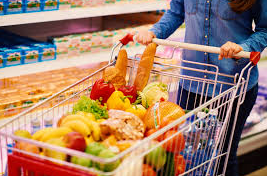
With staples like pasta and baked beans seeing price hikes of up to 50%, charities fear the cost-of-living crisis will drive more families to food banks.
Charities have raised alarms that the escalating cost of food will force more families to rely on food banks, with everyday items like pasta and baked beans experiencing price increases of up to 50%. Labour has dubbed the situation a “cost of living tsunami,” as families grapple with rising prices of essential groceries, which are affecting their ability to afford enough food.
According to recent data from the Office for National Statistics (ONS), in the 12 months leading to April, the cheapest pasta saw a 50% price hike, while common items like bread, minced beef, rice, and crisps increased by over 15%. These price rises come as families already struggling with high energy bills and rent costs now face an even more challenging food landscape.
Charities warn that the pressure on low-income households is growing, with the demand for food banks rising sharply. Jonathan Ashworth, the shadow secretary of state for work and pensions, highlighted the tough choices many families are making, such as cutting back on essential groceries or seeking help from food banks. He also criticised the government’s cuts to universal credit, arguing that they have worsened the crisis.
Sabine Goodwin, coordinator of the Independent Food Aid Network (IFAN), pointed out that the combination of rising food and energy costs is pushing more families into poverty. The organisation revealed that 93% of food banks in its network reported an increase in demand since the beginning of 2022.
In a survey of 30 everyday food items tracked by the ONS, average prices rose by 6-7%, reflecting the ongoing inflation in food and alcohol costs. Alice Fuller from Save the Children UK commented on how families with the lowest incomes are already being forced to make difficult decisions when grocery shopping. However, some items, such as cheese, pizza, and apples, saw price drops, with potatoes being the most notable at a 14% decrease. Yet, these savings are often outweighed by other factors, such as the increased cost of energy for cooking.
As food prices continue to climb, the number of food bank parcels distributed by the Trussell Trust has surged. Between April 2021 and March 2022, the charity distributed over 2.1 million emergency food parcels, a 14% increase compared to the previous year. Local food banks are reporting unprecedented demand, with even basic items like pasta and baked beans running low.
Kathy Bland from Leominster Food Bank expressed concern that while they are providing more food parcels, such support cannot replace the welfare system, and long-term reliance on food banks is not a sustainable solution. Other data from The Food Foundation showed a significant increase in the number of households cutting back on food or missing meals. Between January and April, the number of adults in food-insecure households jumped by 57%, reaching 7.3 million.
Shona Goudie from The Food Foundation stated that rising food prices, coupled with higher energy bills and other essentials, are severely squeezing family budgets, leaving many unable to afford adequate nutrition.
In response to the crisis, Chancellor Rishi Sunak recently announced a £5bn windfall tax on oil and gas companies, with plans to use the funds to support struggling households. This package includes direct payments to low-income families, with £1,200 set to be distributed to the 8 million worst-off households. However, more than 120,000 households may still miss out on this support unless the government raises the benefits cap.
Despite these measures, the ongoing food price inflation and the pressure on families suggest that more needs to be done to address the deepening cost-of-living crisis.












